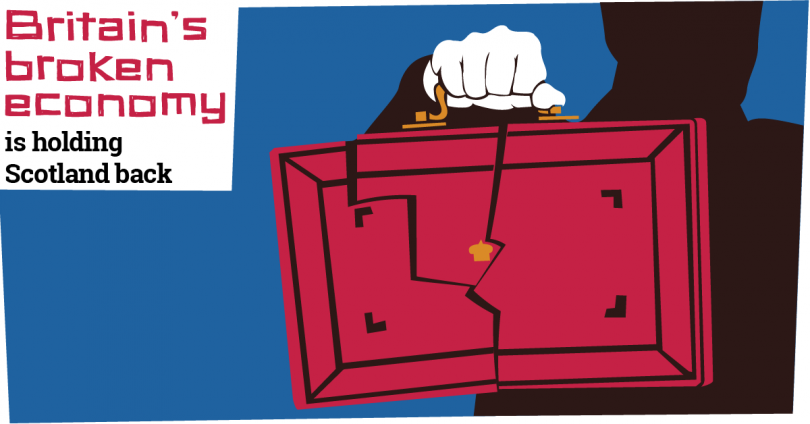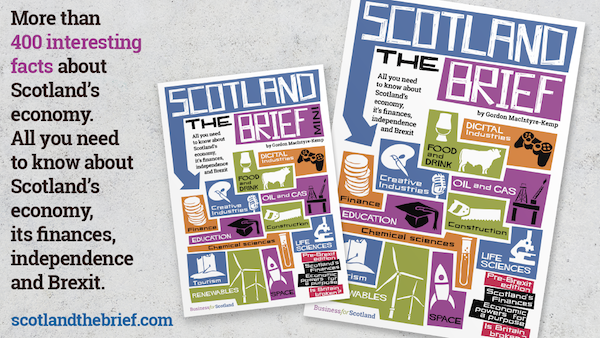Note: This article was first published 3 years ago but has since been updated and was republished on 5th December 2022.
Throughout the articles in this series, we have already seen that the UK is in no position to bail out or subsidise Scotland. In reality, that subsidy has gone the other way. Brexit may be a case study on the Westminster Government’s incompetence and following its implementation we have seen:
- The UK gross debt spiral to £2,365.4bn, equivalent to 99.6% of GDP, 458
- The UK’s banking system, upon which it is overly dependent, collapse,
- Austerity cutting investment and services,
- A slowing of investment dragging on economic growth, meaning the UK has the worst growth in Western and Northern Europe and the slowest in the G20 except for Russia, 459
- The UK’s pensions fall below levels of common decency, with its pension system having one of the worst net replacement rate in the developed world, 460
- The UK’s World Bank Good Governance Score fell to 63/100 for political stability and it has changed prime ministers twice since then, 461
- The UK’s exports per capita are less than half of Scotland’s and its international trade deficit in goods is £154bn, 462
- When comparing actual wage growth to before the 2008 financial crisis, UK workers have lost on average £9,200 per year, 463
- Zero-hour contracts have increased by almost five-fold from 200,000 in 2000 to 1.03 million in 2022 and currently make up 3.02% of the UK workforce, 464
- The UK has the second-longest full-time working hours in Europe, two hours more than the EU average. 465 However, the UK’s productivity, as measured by output per worker, was 13% lower than the G7 average in 2019, 466
- The second largest levels of oil production in Europe, yet faces the 6th highest petrol taxes and the highest diesel taxes across the continent, 467
- The UN has deemed the UK’s cruel austerity policies as a breach of disabled people’s human rights. 468 Austerity measures have also been linked with more than 130,000 preventable deaths across the UK, 469
- On top of all that, the UK Government decided to leave the EU without a trade deal being in place before the end of the 2020 transition period,
- The chancellor announced in his recent financial statement that we are in a recession because we have had two quarters of negative growth. It is also predicted that the recession may be deeper than first thought. 470
Conclusions
Clearly the UK economy is in trouble and is incredibly poorly managed by Westminster’s political leadership. Scotland suffers by the fact that its economy is, by and large, managed by Westminster and Scotland’s public sector spending is restricted by wrong-headed austerity measures and weighed down by the UK’s, not Scotland’s debts.
If you are wondering why the UK is so badly run, then maybe this will give you a clue. The UK has the second largest unelected chamber in the world. The House of Lords, with more than 800 members, is the second largest unelected legislative body in the world, surpassed only by authoritarian China.
As Scotland diverges further in policy attitudes, economic preferences and voting behaviour, more and more people are beginning to realise that Scotland’s prosperity would be better protected by a Scottish Government focused on Scotland needs.
The research findings referred to in this article are contained in our book. You can purchase your copy of Scotland the Brief here.









